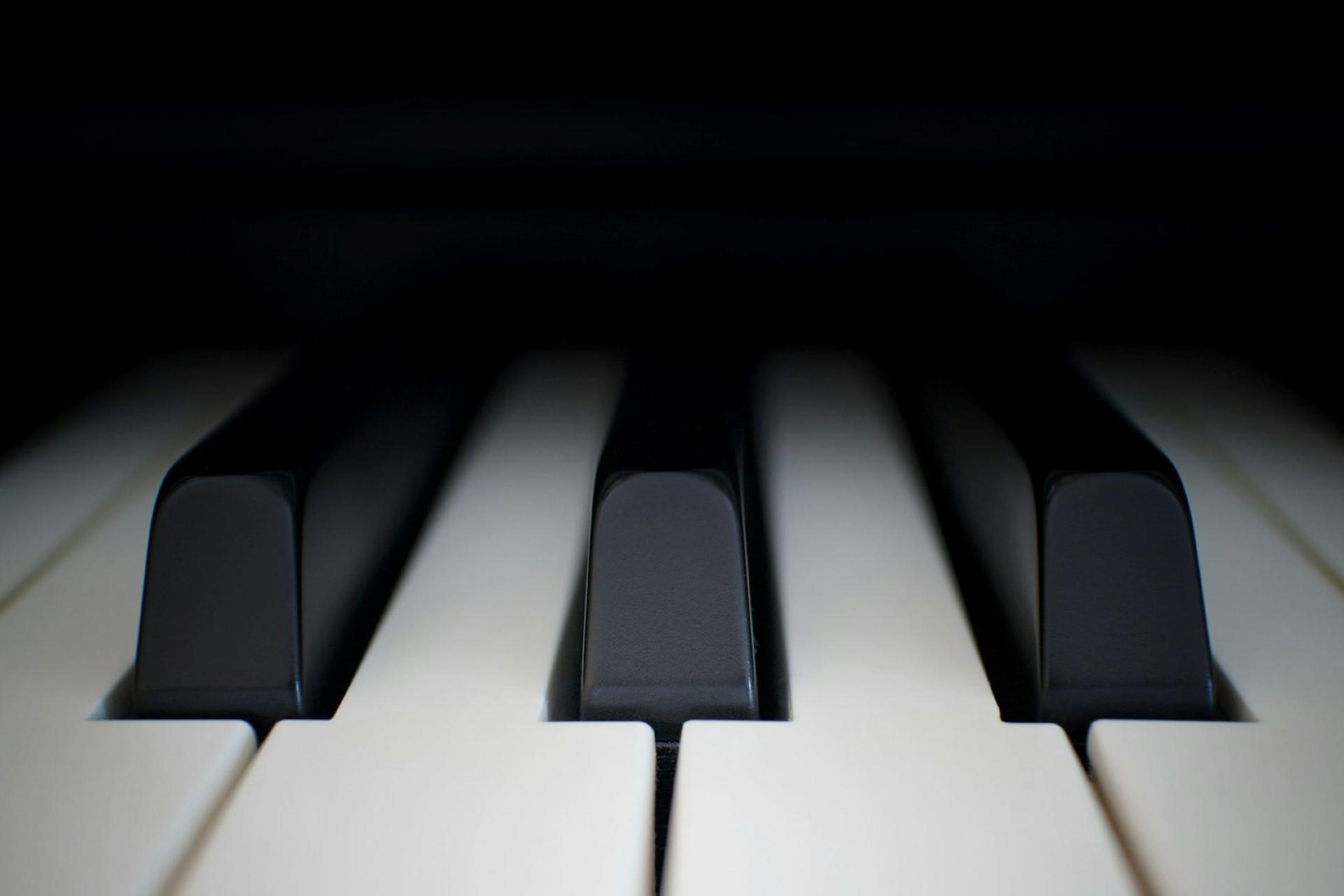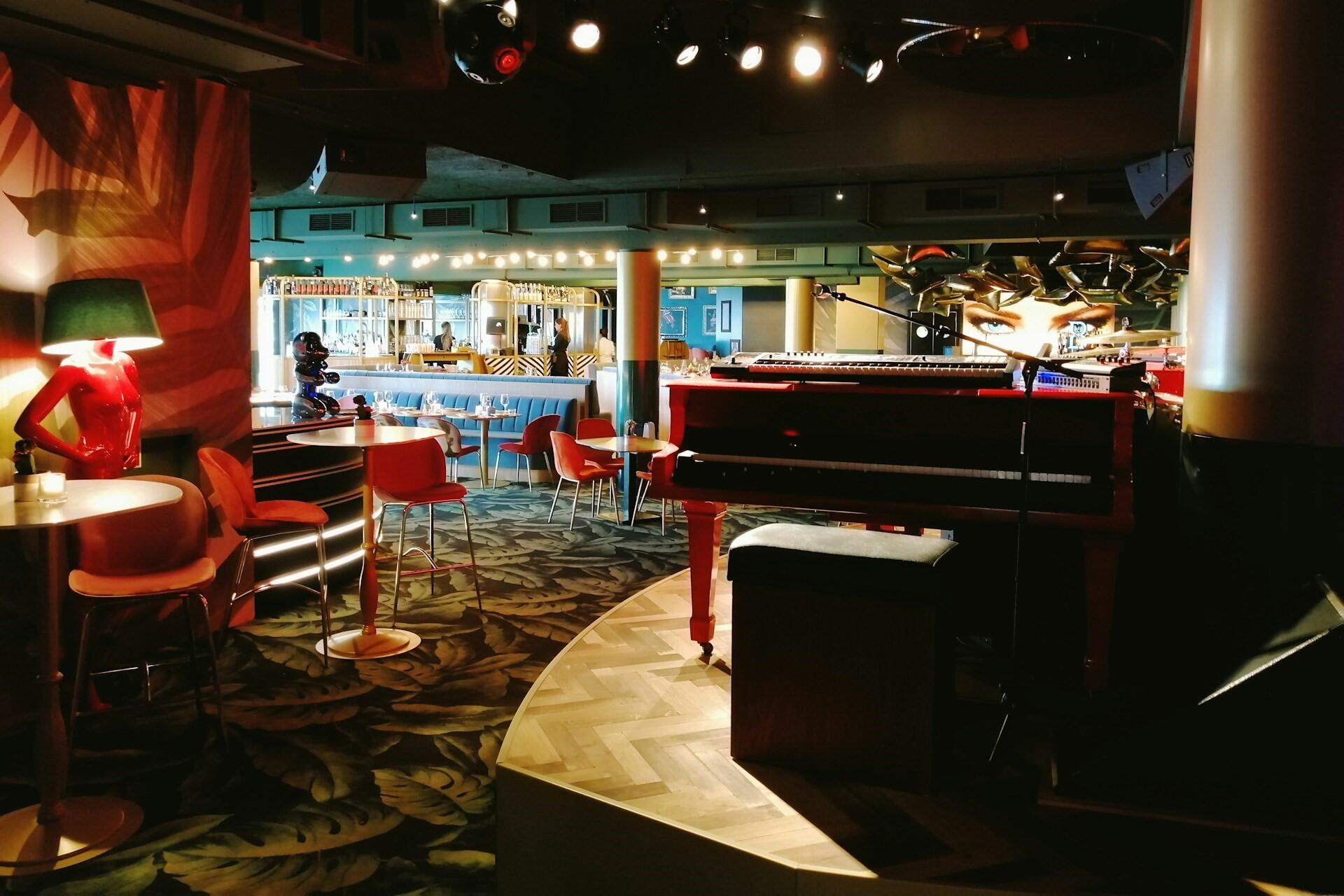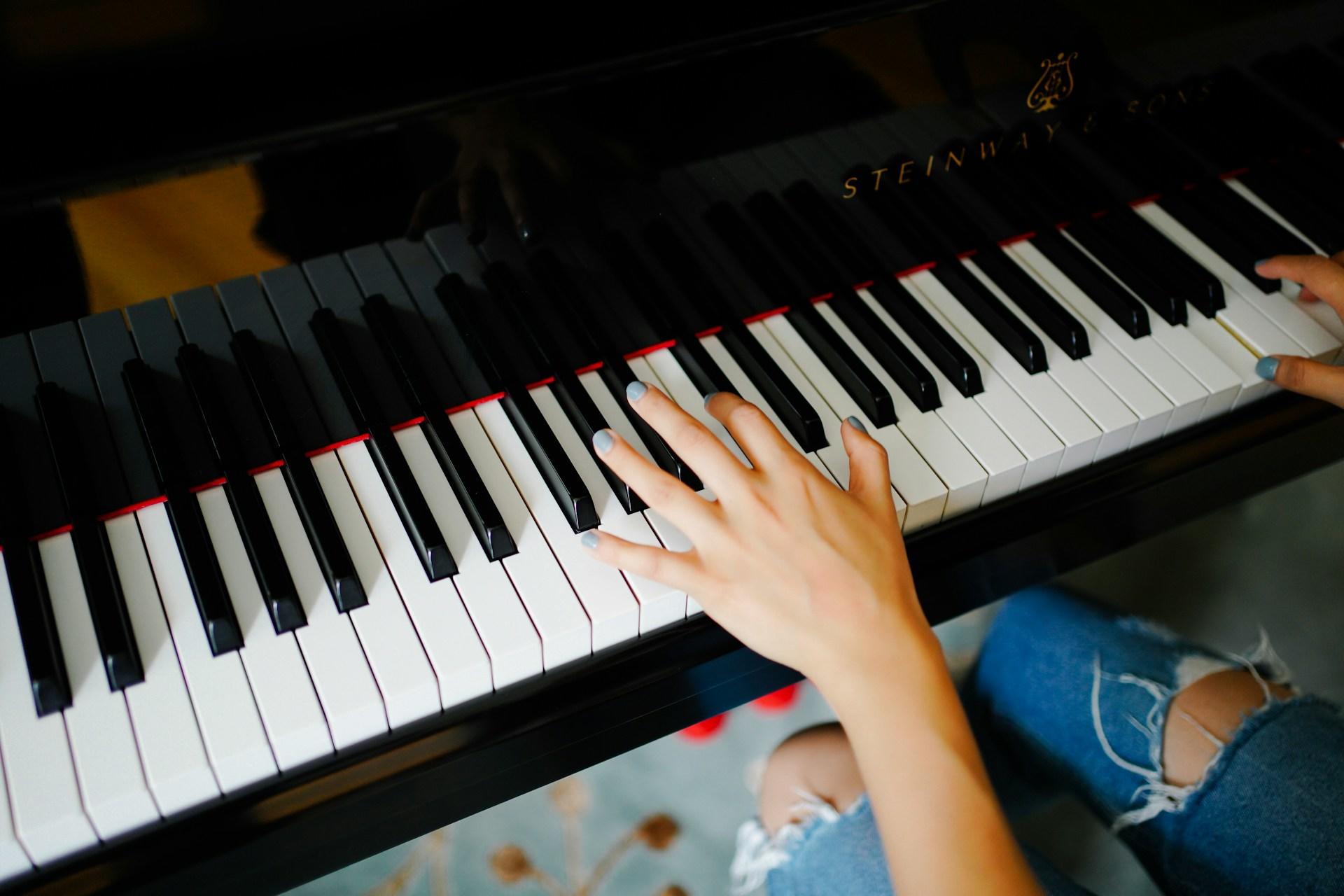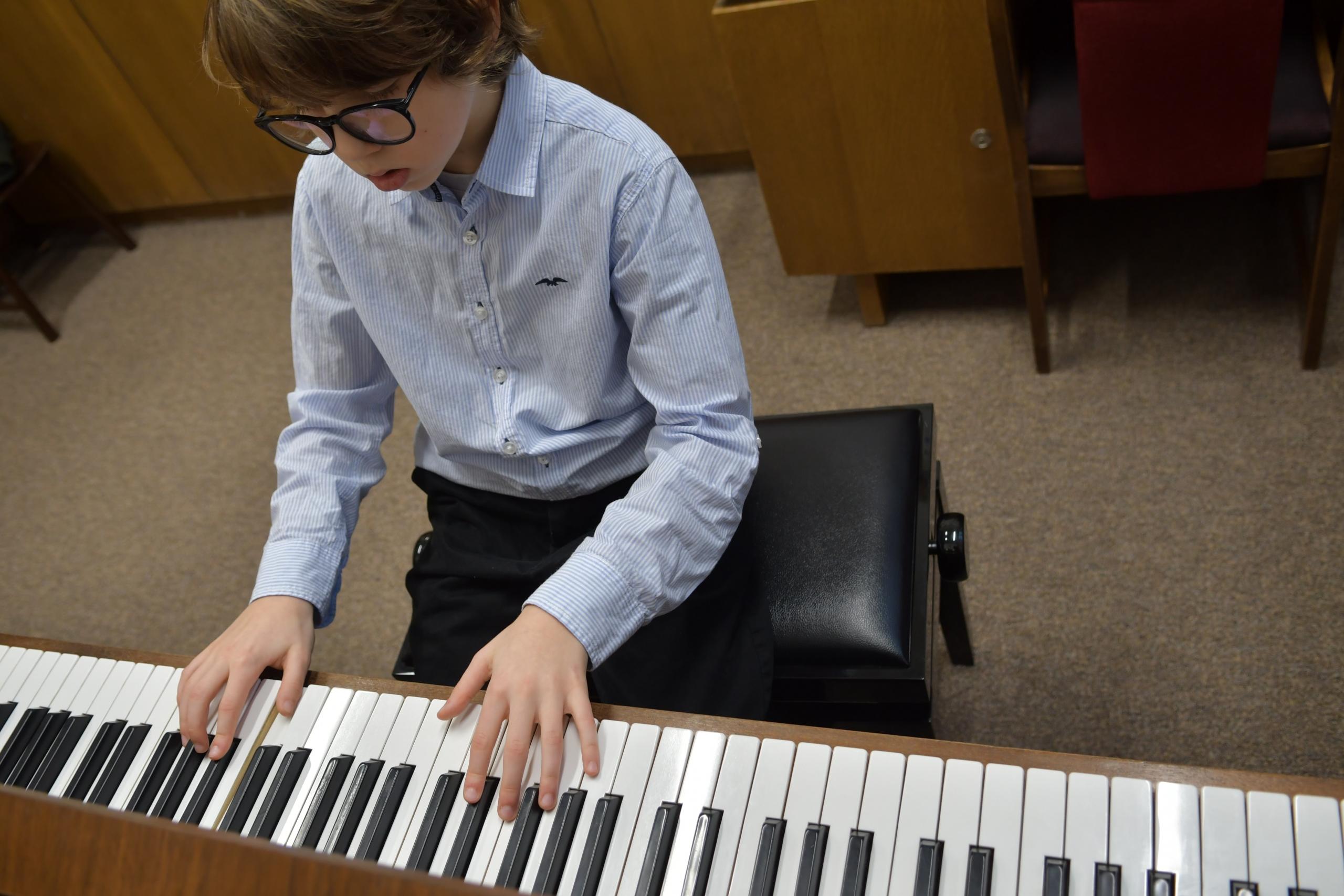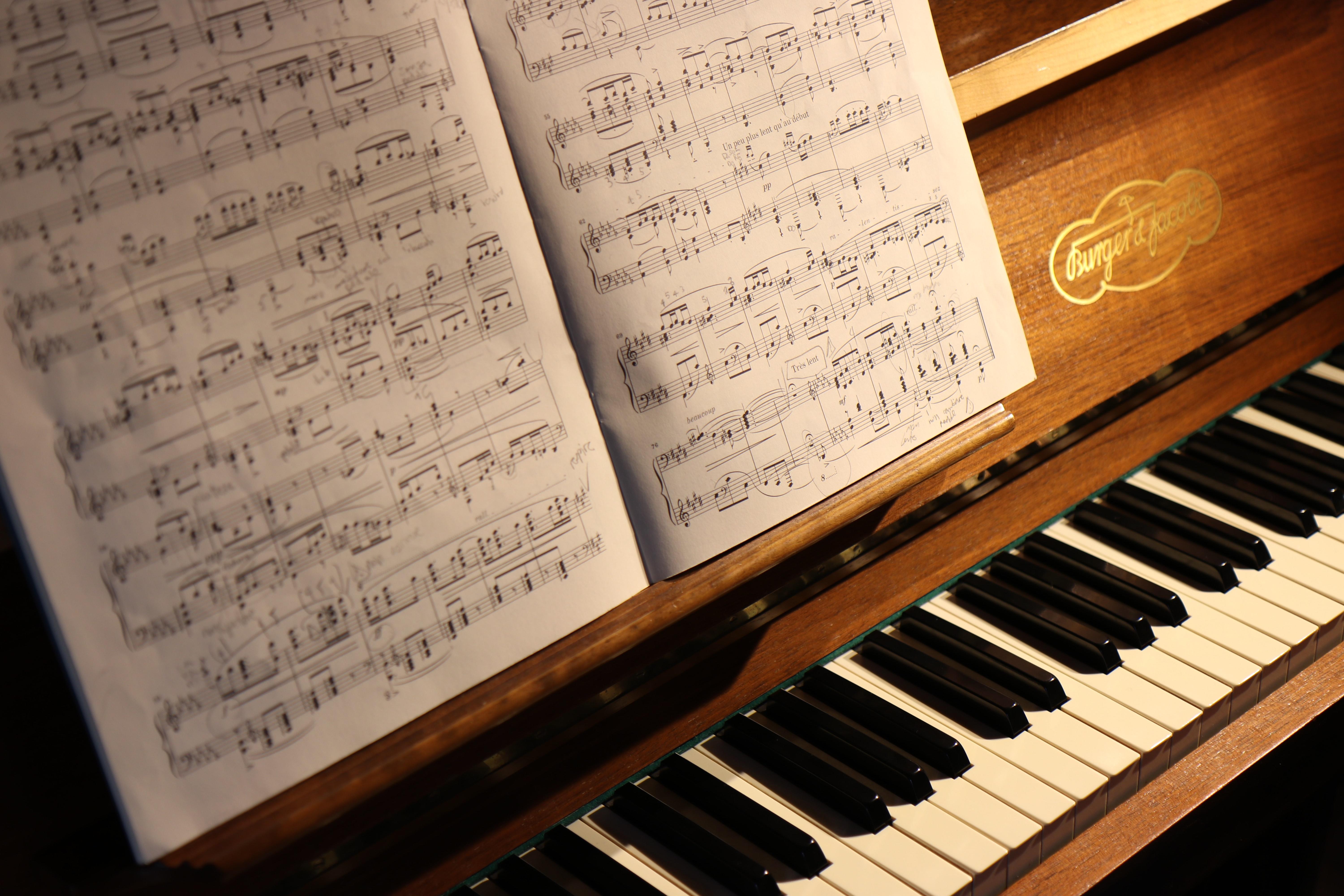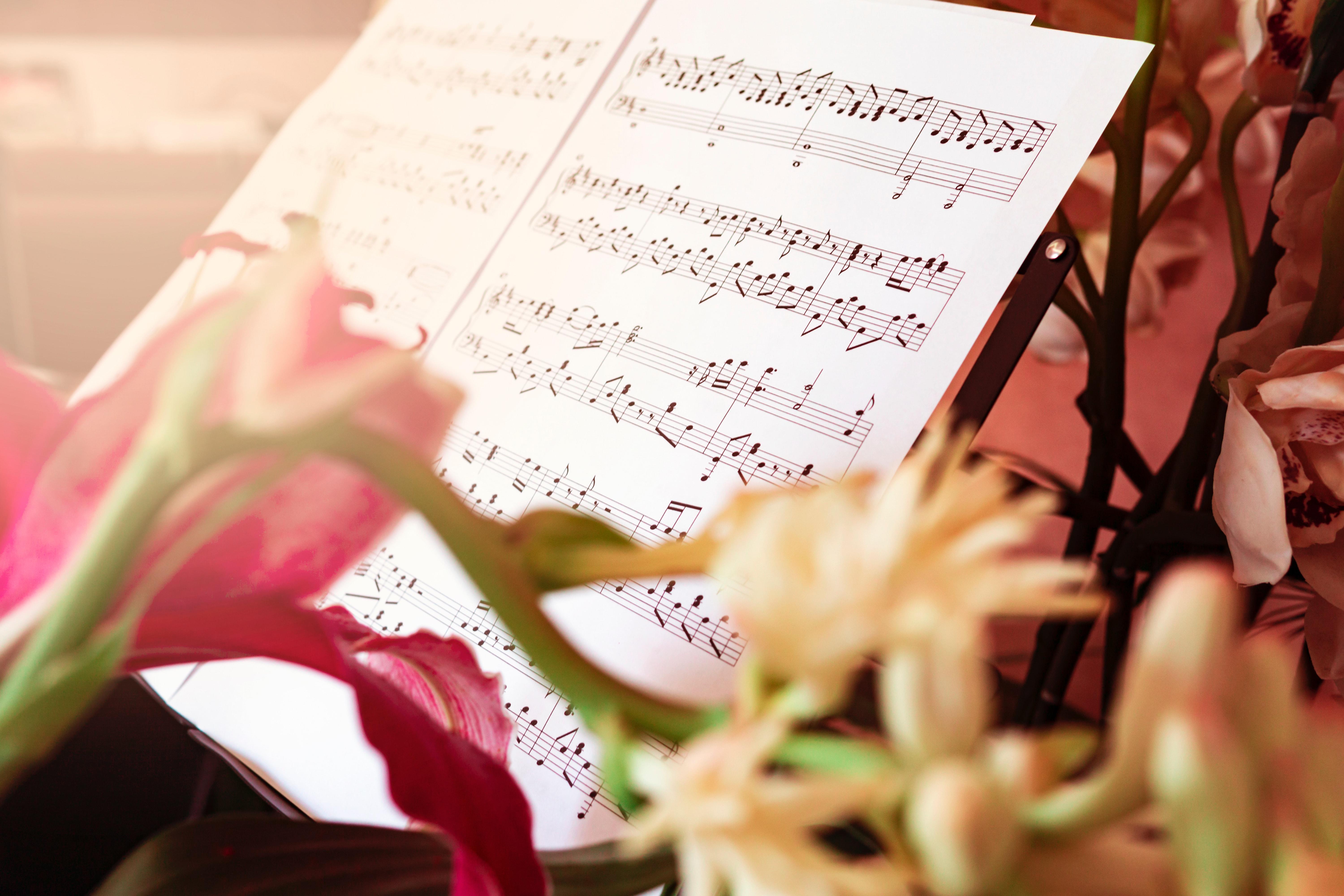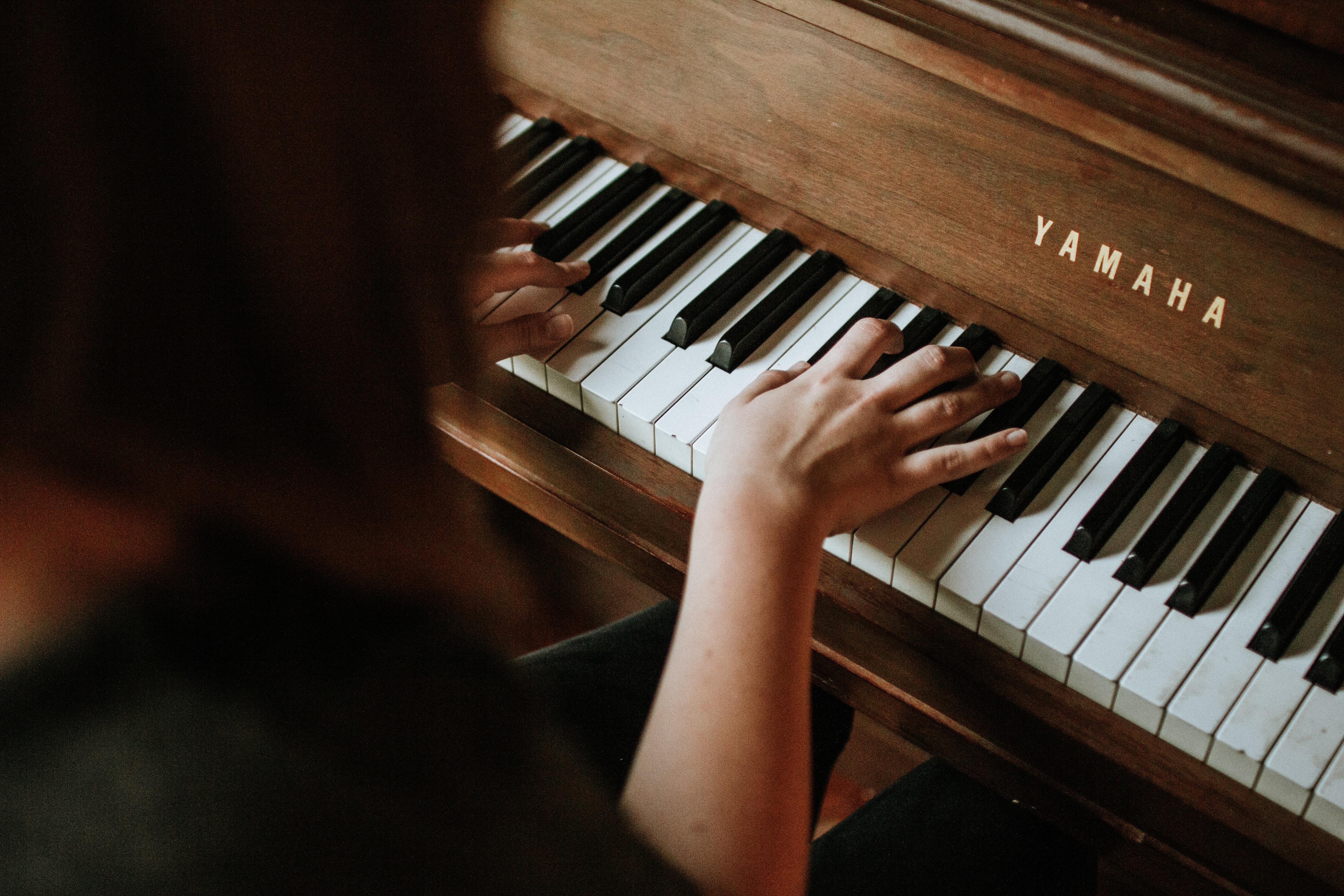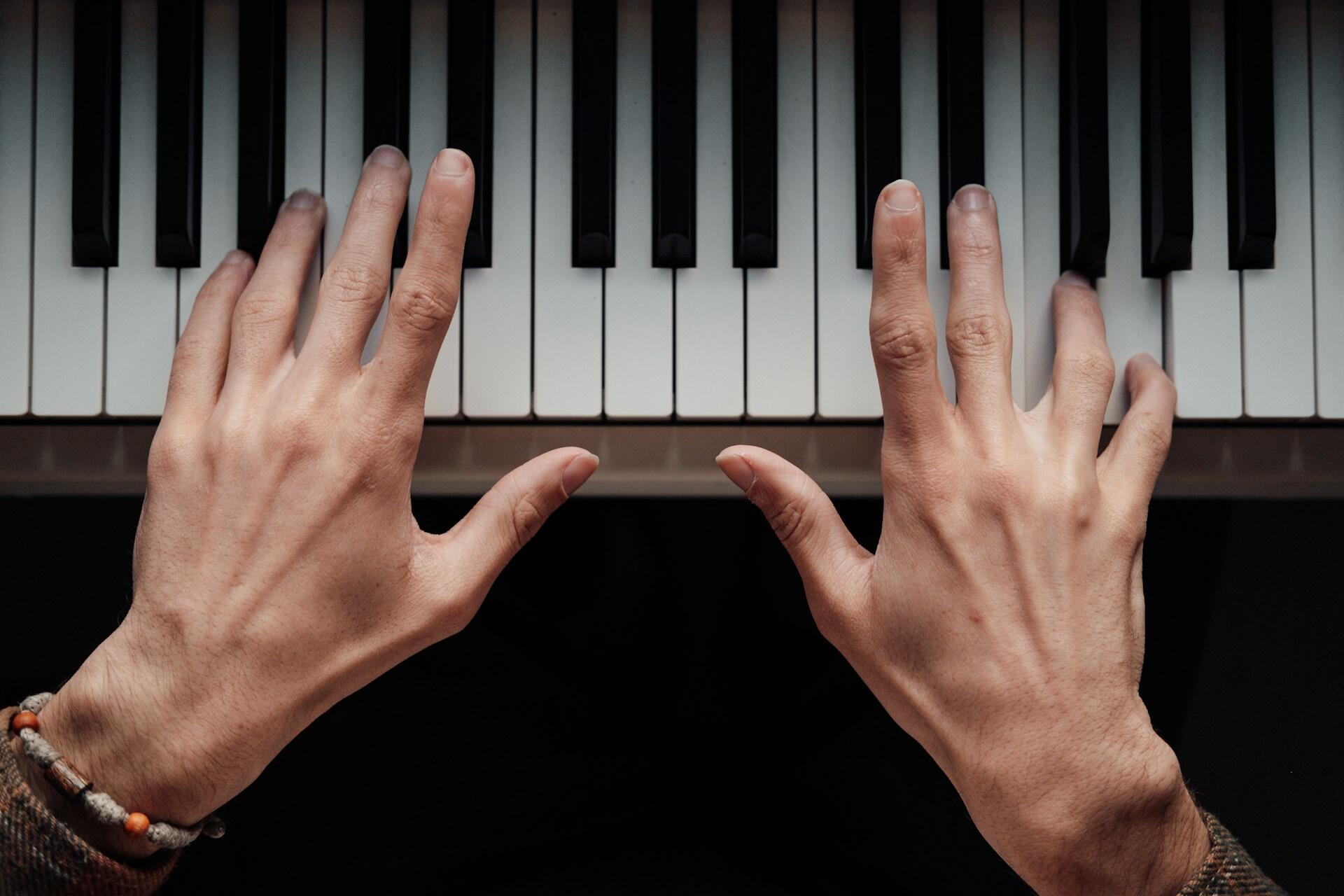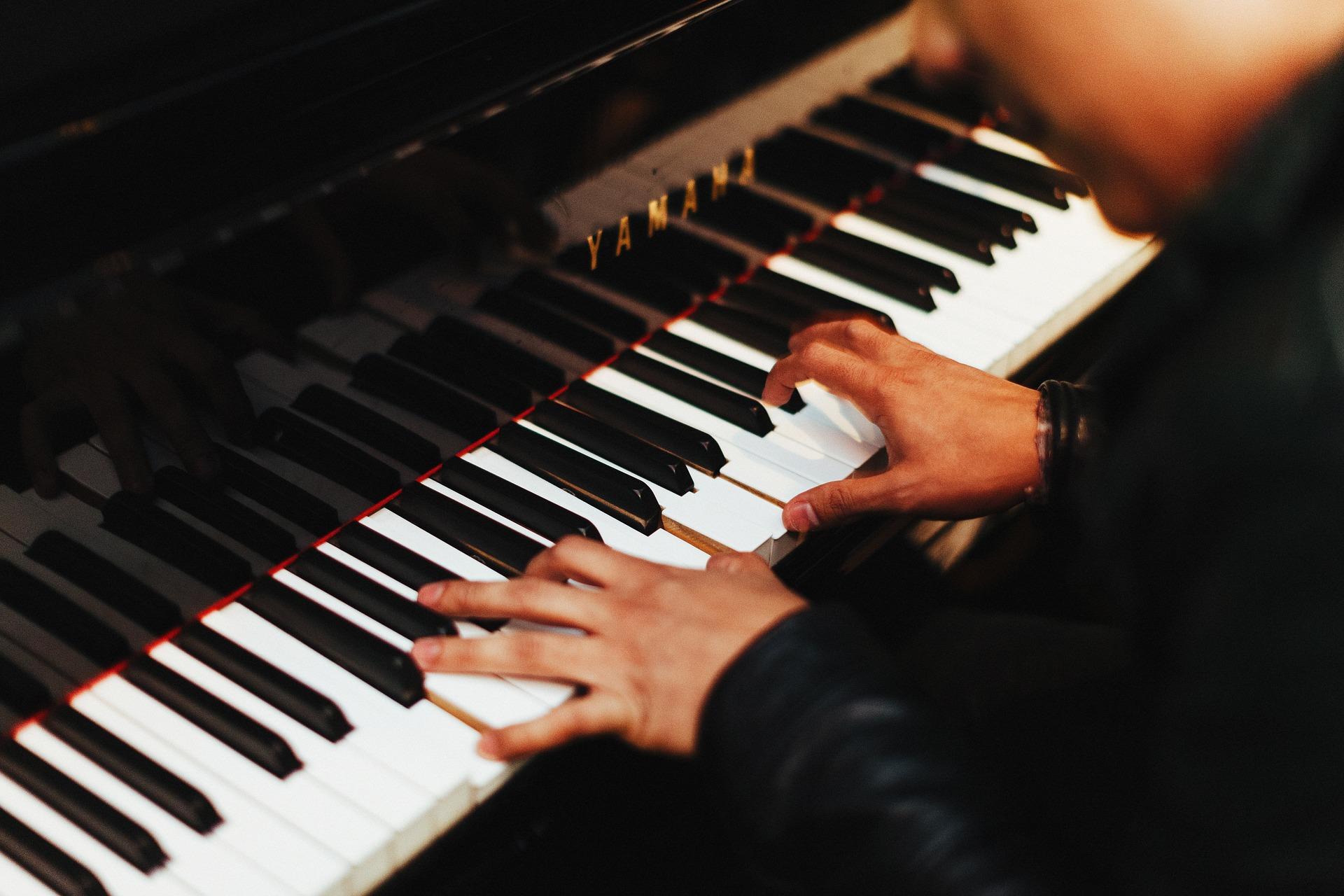Many musicians and pianists will talk about their repertoire, but what exactly is it, why is it so important, and what should your repertoire include?
Here's our quick guide to building your piano repertoire and why every pianists should be regularly thinking about it.

What Is a Repertoire
A repertoire is a collection of pieces and music that any musician can play. For pianists, this naturally refers to the pieces they can play on the piano.
However, this doesn't just mean that you know how to play the piece; it means that you can play it convincingly. The repertoire consists of the pieces that the pianists can play at a level befitting a performance, whether this is a concert or a simple piano recital.
Your repertoire is the pieces that you know how to play, but the term repertoire is also regularly used to refer to collections of pieces common to specific genres.
Essential Pieces to Make Part of Your Repertoire
Every type of music and every genre has certain pieces and compositions you consider essential for learning.
There are no wrong answers regarding what you should include in your repertoire. In fact, the joy of playing diverse pieces across different genres and levels can be a thrilling experience. If you're looking for guidance and some fine examples of what's expected of pianists, here are some great examples to get you started on your exciting repertoire-building journey.
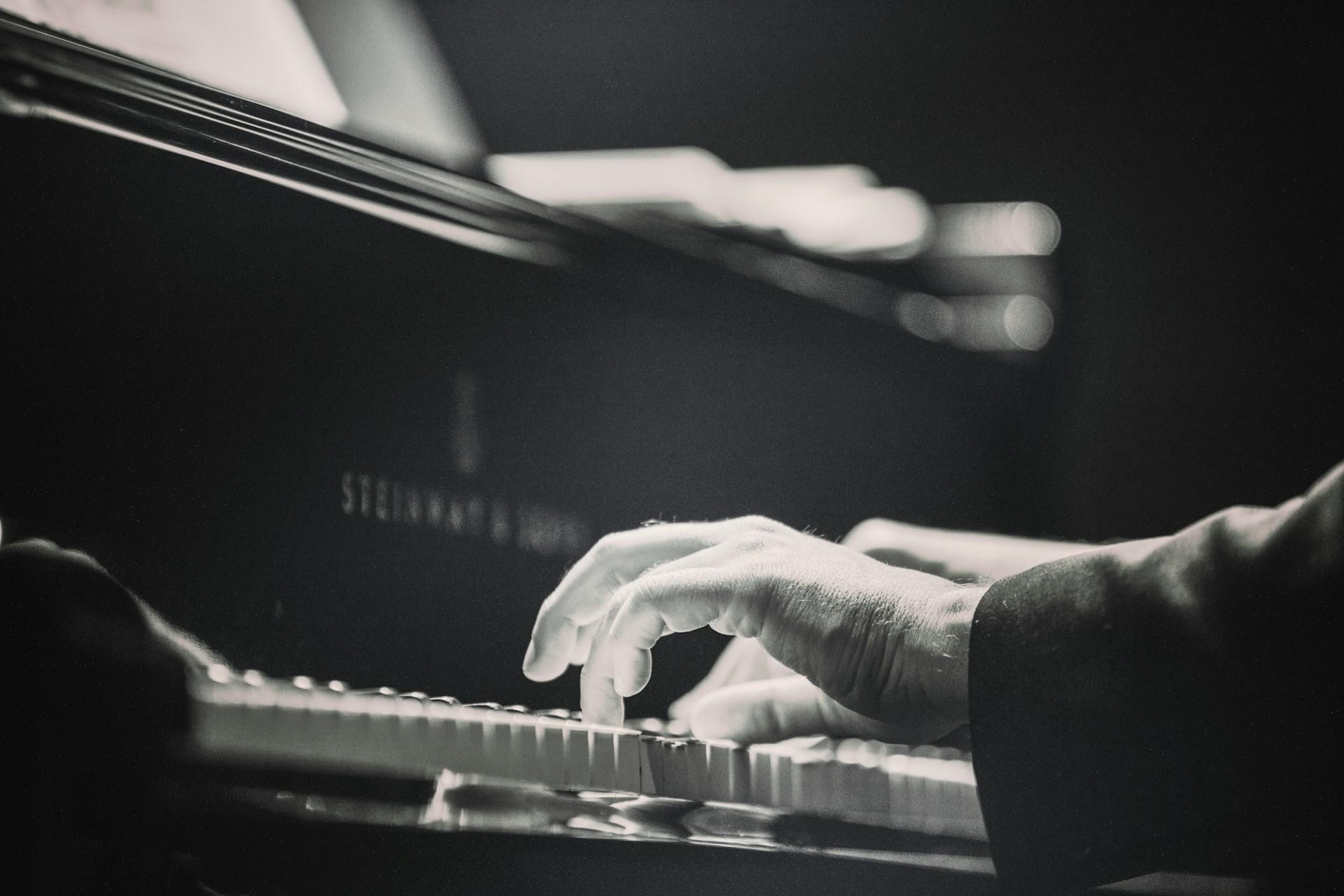
The Classical Repertoire
The classical repertoire includes piano pieces from some of the greatest classical composers of all time, such as Bach, Mozart, Beethoven, Chopin, Liszt, and Debussy.
Though classical music is often associated with advanced pianists, they're accessible pieces for everyone.
Ludwig van Beethoven
- "Moonlight Sonata" (Piano Sonata No. 14 in C-sharp minor, Op. 27, No. 2)
- "Für Elise" (Bagatelle in A minor, WoO 59)
- "Pathétique Sonata" (Piano Sonata No. 8 in C minor, Op. 13)
Frédéric Chopin
- "Nocturnes" (Op. 9, No. 2; Op. 27, No. 2; Op. 48, No. 1, etc.)
- "Études" (Op. 10 and Op. 25)
- "Preludes" (Op. 28)
Claude Debussy
- "Clair de Lune" (from Suite Bergamasque)
- "Arabesque No. 1" (L. 66)
- "Reverie" (L. 68)
Johann Sebastian Bach
- "Goldberg Variations" (BWV 988)
- "The Well-Tempered Clavier" (BWV 846-893)
- "Italian Concerto" (BWV 971)
Sergei Rachmaninoff
- "Prelude in C-sharp minor" (Op. 3, No. 2)
- "Piano Concerto No. 2 in C minor" (Op. 18)
- "Rhapsody on a Theme of Paganini" (Op. 43)
Franz Liszt
- "Liebesträume" (Dreams of Love)
- "Hungarian Rhapsodies"
- "Consolations"
Wolfgang Amadeus Mozart
- Piano Sonata No. 11 in A major, K. 331 ("Alla Turca")
- Piano Sonata No. 16 in C major, K. 545 ("Sonata facile")
- "Fantasia in D minor", K. 397
Maurice Ravel
- "Pavane pour une infante défunte" (Pavane for a Dead Princess)
- "Jeux d'eau" (Water Games)
- "Gaspard de la nuit"
Franz Schubert
- "Impromptus" (D. 899, D. 935)
- "Moments musicaux" (D. 780)
- "Wanderer Fantasy" (Fantasy in C major, D. 760)
Robert Schumann
- "Kinderszenen" (Scenes from Childhood), Op. 15
- "Carnaval" (Op. 9)
- "Fantasiestücke" (Op. 12)
Etudes and Exercises
Etudes and exercises are compositions explicitly designed to test and improve technical piano playing skills. They are worth including if you want to develop your skills.
Many composers created various études and exercises specifically for themselves to challenge their understanding of the piano. Fortunately for you, these pieces are also useful for pianists that want to include certain aspects of piano playing when they practice.
Frédéric Chopin
- "Revolutionary Étude" (Op. 10, No. 12)
- "Winter Wind Étude" (Op. 25, No. 11)
Claude Debussy
- "Études, L. 136"
Carl Czerny
- "The School of Velocity, Op. 299"
- "The Art of Finger Dexterity, Op. 740"
Hanon
- "The Virtuoso Pianist in Sixty Exercises"
Franz Liszt
- "Transcendental Études", particularly "Feux Follets" (Will-o'-the-Wisps) and "Mazeppa.”
Sergei Rachmaninoff
- "Études-Tableaux, Op. 33"
- "Études-Tableaux, Op. 39"
Alexander Scriabin
- "Études, Op. 8"
- "Études, Op. 42"
Igor Stravinsky
- "Piano-Rag-Music"

A Contemporary and Popular Music Repertoire
Pianists interested in playing more modern music could consider various contemporary genres and must-know piano pieces, including pop and rock, jazz, film music, Broadway and musical theater, and contemporary classical crossover music.
There is no hard and fast rule about which songs are considered essential for pianists; it really depends on the pianist's level, the kind of music they like to play, and the kind of music they have to play.
Certain genres of contemporary music tend to offer some very accesible pieces for pianists.
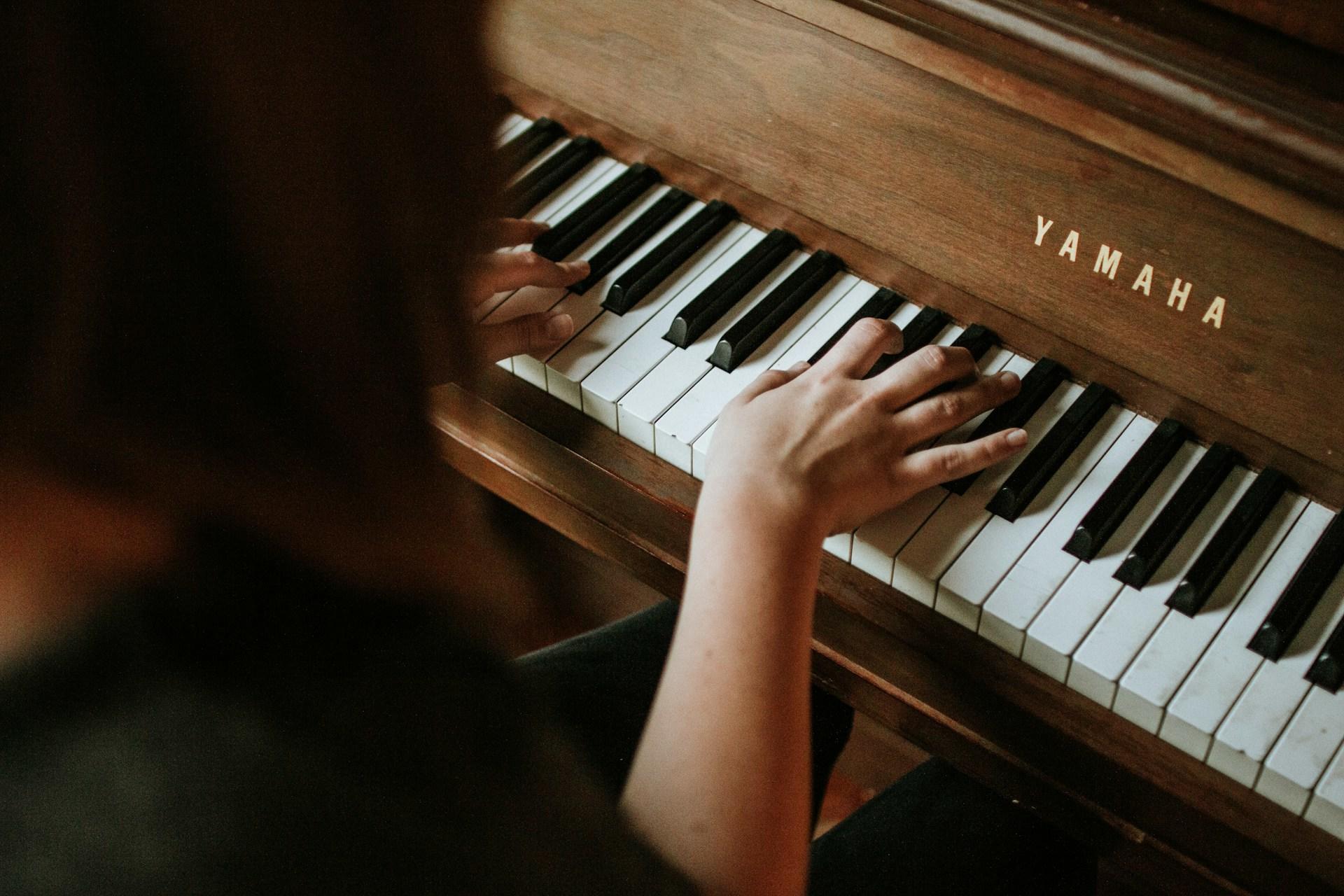
Pop and Rock Songs for Piano
- Adele - “Someone Like You”
- Coldplay - “Clocks”
- Queen - “Bohemian Rhapsody”
Jazz Songs for Piano
- Dave Brubeck - “Take Five”
- Thelonious Monk - “Blue Monk”
Film Music for Piano
- Yann Tiersen - “Comptine d'un autre été” (from “Amélie”)
- John Williams - “Theme from Schindler's List”
Contemporary Classical Crossover Music
- Yiruma - “River Flows in You”
- Max Richter - “On the Nature of Daylight”
Broadway/Musical Theater Pieces for Piano
Broadway music is often good for intermediate pianists as it blends classical elements with more contemporary flavors.
- Andrew Lloyd Webber - “Memory” (from “Cats”)
- Stephen Schwartz - “Defying Gravity” (from “Wicked)
The Importance of a Repertoire
There are plenty of reasons why a repertoire is essential. While you can always learn whatever pieces you'd like for the piano, your repertoire can showcase your development as a pianist.
As your repertoire grows, you'll likely see the pieces you add to your repertoire trending toward more advanced and technical pieces. This isn't to say that every piece you'll learn will always be incredibly challenging and virtuosic pieces, but over time, you'll see more and more advanced pieces making their way into your repertoire.
A repertoire is also indicative of the kind of pianist you are. Classically trained pianists may tend to have a repertoire that includes more music that you'd classify as part of the classical repertoire and maybe even the études that we mentioned. However, different kinds of pianists may look to vary their repertoire, especially if they tend to play and perform in various settings.
Your repertoire can help you find work as a pianist, too. Suppose your repertoire includes certain kinds of music and showcases your ability to play music from specific genres. In that case, your repertoire can act as your piano-playing résumé.
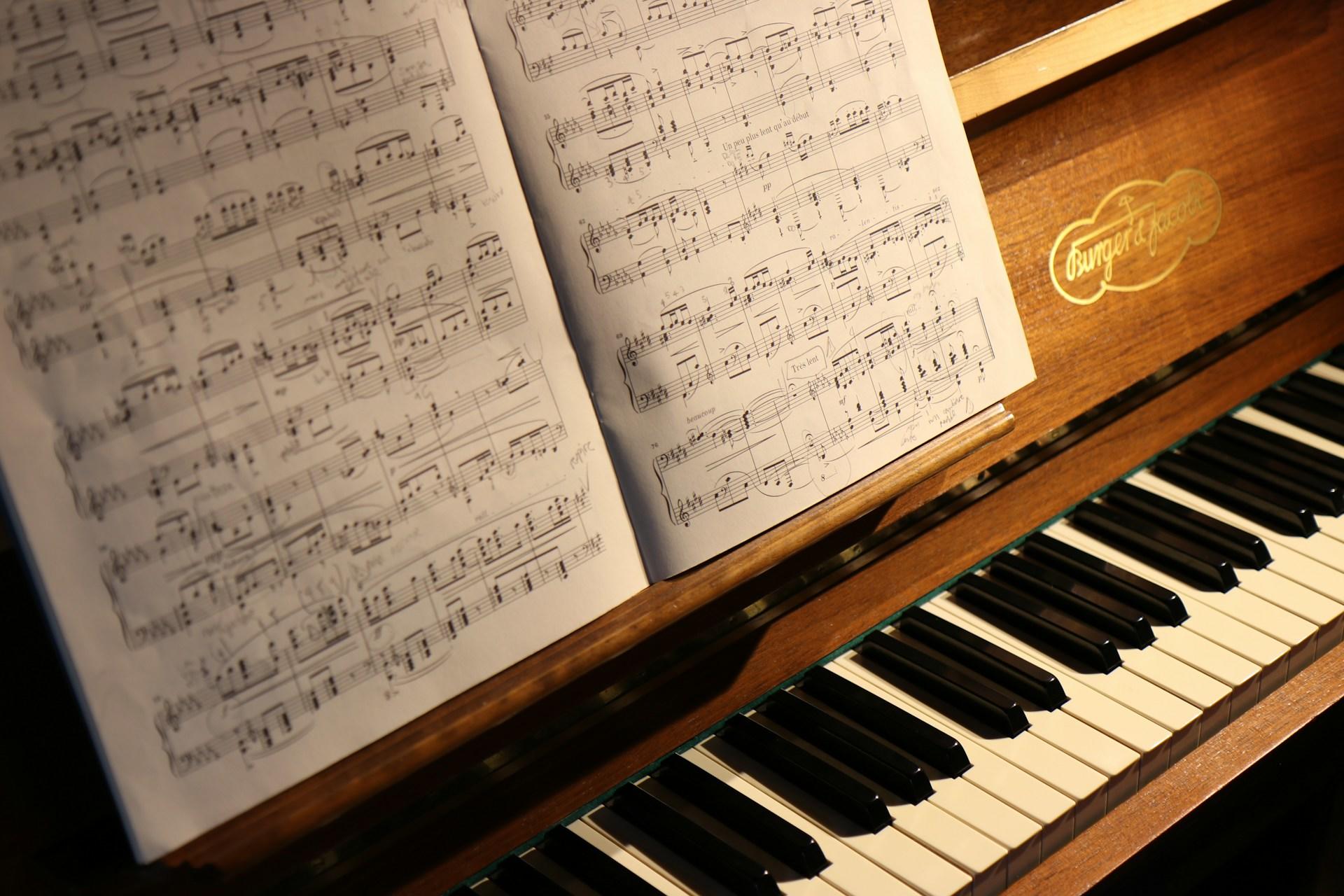
How Can a Repertoire Help Your Piano Playing
A repertoire isn't simply the songs you know, working on your repertoire allows you to improve your playing with varied music, structure your piano lessons or practice sessions, and give you a better idea of what level you play the piano at.
Here are just some of the key advantages to building and maintaining your piano repertoire.
Improve Your Technical Skills
As we saw earlier in the article, there's an entire repertoire of études and technical exercises from composers that you can use to improve your piano playing.
These may include scales, arpeggios, and complex rhythms. By learning these pieces and making them part of your repertoire, you can also improve your piano playing skills.
Interpret Music Better
Your repertoire will also improve how you understand different genres of music. By working on a well-rounded classical repertoire, you'll appreciate and understand the genre's standards, how you'd be expected to play such music, and how to interpret each style.
Preparing as a Pianist
A well-rounded repertoire will prepare you for anything and make each piano performance less daunting.
No matter where you play the piano, your repertoire will be there. Whether it's concert performances or performing more casually, it helps to have worked on your repertoire and pieces.
A Roadmap for Your Piano Playing
The pieces in your repertoire are not only the history of your piano playing. They can also act as a roadmap for your playing, which is great for beginner pianists looking to structure their learning.
Some repertoires indicate a pianist's level, and certain pieces or entire repertoires are expected to be part of certain pianists' repertoires.
For anyone studying piano grades through the Associated Board of the Royal Schools of Music (ABRSM) with grades, the Royal Conservatory of Music (RCM), for example, the grading will include pieces that are expected to be part of pianists' repertoires at each level or grade.
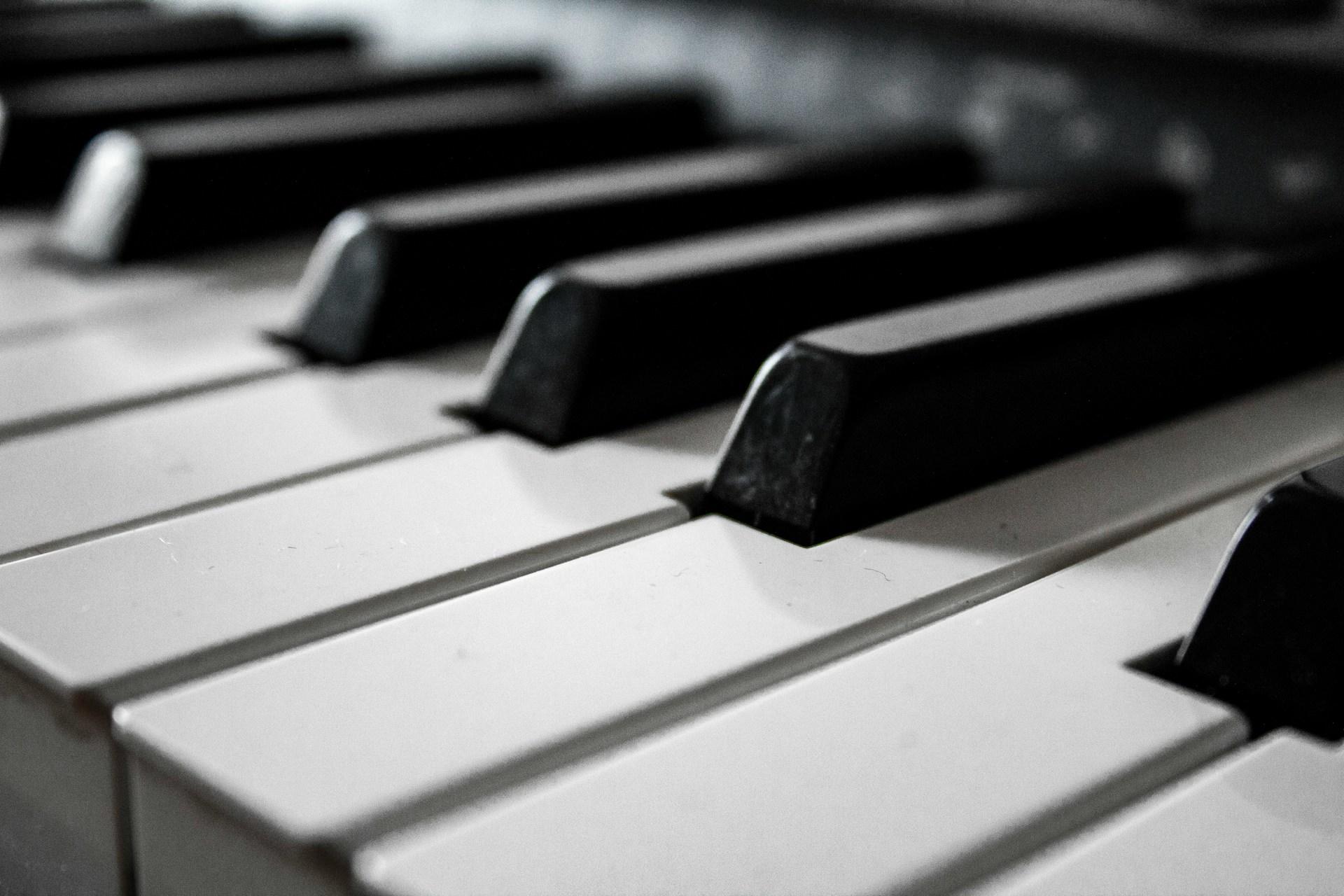
Building Your Repertoire with Superprof
Choosing the right pieces to learn is the hardest part of building your repertoire. Selecting pieces that are too easy will not improve your playing.
Conversely, suppose you choose pieces that are too difficult. In that case, you may spend a lot of time trying to learn them without ever being able to master them until your playing dramatically improves.
The best way to work out which pieces should be part of your piano repertoire is by working with a dedicated private piano teacher or tutor. Experienced piano tutors will know which pieces are suitable for each level and can suggest pieces for your repertoire. Beyond that, they can also help you with the trickier parts of each piece, providing exercises to improve every aspect of your playing. For instance, if you're looking for specialized guidance, many students have found success with piano lessons atlanta.
To find a private tutor on the Superprof website, search for "piano" and browse potential tutors' profiles today. You can see how much each tutor charges, what they teach, and what their other students thought of their lessons. Additionally, if you're in Las Vegas, consider checking out piano lessons las vegas.
We recommend shortlisting potential tutors and only contacting tutors once you have a better idea of what you're looking for. With many offering the first lesson for free, you can try out a few different tutors before choosing the one that's right for you, your piano repertoire, and the pieces you want to add!
Discover amazing piano classes taught by superb tutors on Superprof!
Summarize with AI:

